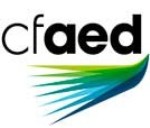May 8 2014
Dresden's scientists are internationally renowned in the field of biomimetic material synthesis which uses biological principles such as molecular recognition and self-assembling for the tailor-made synthesis of new materials and structures. Therefore, the international workshop 'DNA-Based Nanotechnology: Digital Chemistry (DNATEC14)' hosted by the Max Planck Institute for the Physics of Complex Systems is well received within the global community.
The workshop takes place from 5 to 9 Mai and will be organized with the help of the Center for Advancing Electronics Dresden (cfaed) of TU Dresden and Kurt Schwabe Institute for Measure and Sensor Technology e.V. Meinsberg.

"This promising future nanotechnology uses the genetic material carrier Deoxyribonucleic Acid (DNA) as a basic element for future electronic devices and sensors. We expect that the efficiency of the traditional silicon-based semiconductor technologies cannot be furthered in about ten years", workshop coordinator Prof. Michael Mertig, also Leader of the cfaed research Path 'Biomolecular-Assembled Circuits' (BAC), explains. "Hence, such innovative approaches are very interesting." About one hundred scientists are expected to attend the conference. The lecturers visit from the USA, France, Denmark, Netherlands, India, Italy, Japan, UK, Israel, and Germany. Amongst them are Ned Seeman of New York University, the founder of the research area of structured DNA-Nanotechnology, and Hiroshi Sugiyama of Kyoto University, who uses the so-called DNA-origami structures in a fascinating way for the analysis of DNA-protein-interdependencies.
The workshop focuses on nano-photonic structures for the future use in microelectronics, the use of artificial DNA-structures in biology, new sensor mechanisms and functional systems. For example, the internationally renowned DNA-expert Prof. Itamar Willner of The Hebrew University in Jerusalem will talk about DNA-based functional materials. The Israeli scientist is also 'Grand Professor' of cfaed and, in this role, is coaching young highly-talented scientists, e.g., cfaed research group leader Dr. Thorsten-Lars Schmidt. Dr. Schmidt will present a polyamide-based glue for double-stranded DNA and enzymatically produced oligonucleotides for structural DNA nanotechnology. Further talks will be held by cluster coordinator Prof. Gerhard Fettweis, Technische Universität Dresden and Prof. Frank Jülicher of cfaed partner and host of the workshop Max Planck Institute for the Physics of Complex Systems.